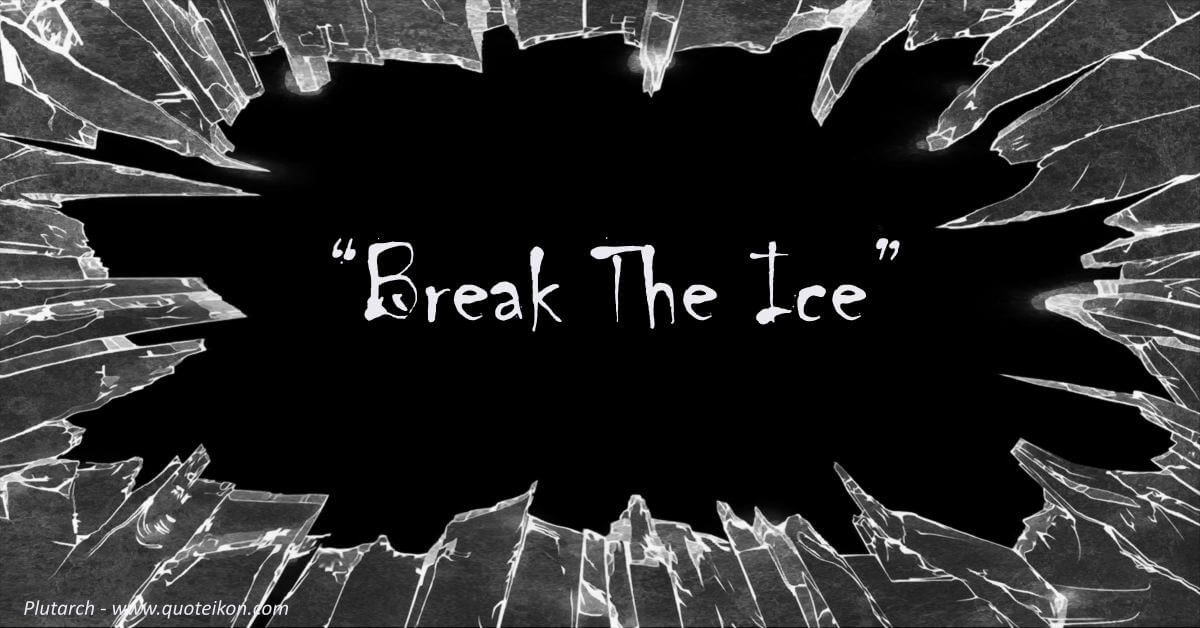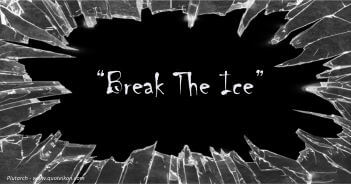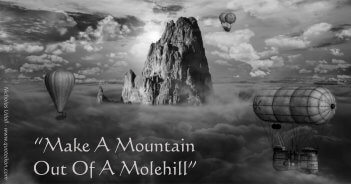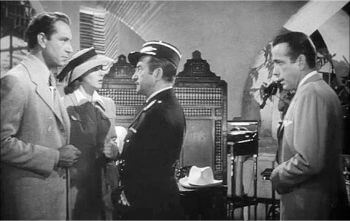
Break The Ice
Plutarch Quote
Formalities be damned. Cry 'Havoc!', let slip the jokes and roar. Tear through the barriers of social awkwardness with the small talk of triviality. Or, to use more eloquent brevity, break the ice.
The long history of the idiom 'break the ice' was first recorded in Roman times by the Greek writer Plutarch. His epic biography Parallel Lives of the Noble Grecians and Romanes was written at the dawn of the 2nd Century AD. In 1579 Sir Thomas North translated Plutarch's book which revealed the line; "To be the first to break the Ice of the Enterprise"
. The allusion adumbrated an accord of doing business.
The Dutch philosopher Erasmus cited in his 1528 book Collectanea Adagiorum an earlier European recording of the phrase whom he attributed to the Italian Renaissance writer Francesco Filelfo (1398-1481) who used the Latin term "glaciem fregi"
meaning break the ice.
In 1590, the term 'Break the ice' was written into the William Shakespeare play The Taming Of The Shrew. The scripted line was; "And if you break the ice and do this feat"
. It was spoken by the character Tranio who was impersonating Lucentio. The intended reference was towards the wooing of Katherine who was said to have a cold demeanour to break down.
There is an interesting quote by the journalist David Kindy who spoke of a train of thought identifying Sir Thomas North as an influence to Shakespeare; "Because of his translation of the Greek historian Plutarch’s Parallel Lives, North is widely recognized as the inspiration for numerous Shakespeare plays, including Antony and Cleopatra and Julius Caesar"
.
It was during the 17th century that the phrase first took on the meaning of cutting through socially sticky situations. The writer Samuel Butler penned the poem Hudibras, that contained the self evident line; "The Oratour – At last broke silence, and the Ice"
.
Break The Ice, Meaning
The industrial revolution meant the expansion of trade routes and passenger travel. Winter in the northern hemisphere means lakes, rivers and sea's can freeze over. To maintain maritime trade and travel a thick hulled icebreaker would be deployed in advance to clear a path for ships to navigate through. In nautical terms, break the ice means forging a path for others to follow.
By the turn of the nineteenth century the phrase break the ice had become a commonplace idiom with the allusion of easing tension with a view to providing a more relaxed environment.
Break the ice means to say or do something that makes people feel more comfortable in uncertain surroundings. Making people laugh is the widely used method of ice breaking. Trivial small talk can ease in a relaxing vibe whilst soft lighting and scented candles can produce an ambience of calm.
A glass of champagne is often offered upon entering certain events to break the ice caused by social anxiety. The act of raising the glass to mouth reduces nervous tension by giving the visitor something to do while they acclimatise to the social surroundings. It also has the added benefit of loosening the tongue to encourage conversation.
We all encounter situations that start with an awkward silence and the alleviation felt by all at the crack of a joke is a big relief. It is also memorable for the foresight and ingenuity of the ice breaker.
![]() Article By: Michael Joseph Farrelly
Article By: Michael Joseph Farrelly
Great quotes are not where you find great wisdom. It's where you share this knowledge that counts
Sharing Is Caring
Random Ice Quote
"Like fragile ice anger passes away in time"
- Ovid










